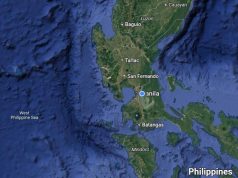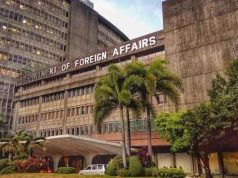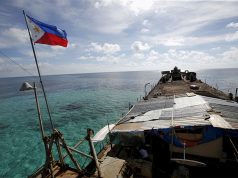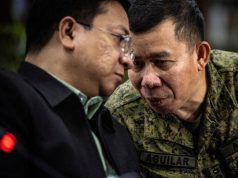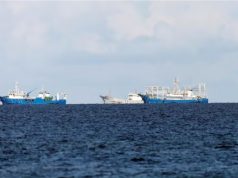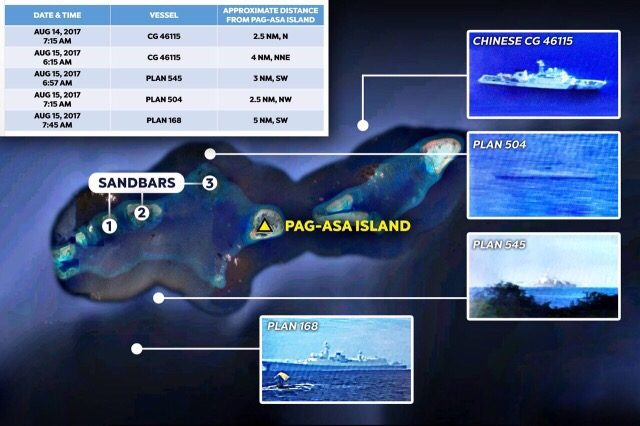
MANILA, Philippines – Foreign Affairs Secretary Alan Peter Cayetano said Wednesday the government is still confirming the presence of Chinese Navy and Coast Guard vessels north of Pagasa Island in the Spratlys Archipelago, but said that this should not be a cause for alarm.
“I can’t confirm or deny because this is part of the discussion with the command center, but I’ll tell you, that’s continuous. We will tell you if this is a cause for diplomatic or military alarm,” he said in a news conference at the House of Representatives.
“While I can’t tell you the details, I can tell you the communication is there. There are reasons for certain presence of certain vessels, but the situation in the area is very stable,” he added.
Cayetano was asked to comment on a statement by Magdalo partylist Representative Gary Alejano, who raised alarm on Tuesday about the alleged massing up of Chinese vessels in the Spratlys archipelago.
Alejano said that if the Chinese action was proven true, the Philippine government should lodge a diplomatic protest.
Cayetano was at the House to give a briefing to the members of the special committee on the West Philippine Sea. The meeting was held behind closed doors.
He said the presence of the Chinese ships alone “does not mean anything” and cautioned Alejano against “stirring up” the situation.
Alarmed by China but not by US ships?
“For example, let me ask Congressman Alejano, why are we not concerned about the US doing freedom of navigation, and they have large vessels. Why? Because they are our allies,” he said.
“If we keep looking at China as the enemy and react at their every movement . . . If we start developing mutual trust with them, we pick up the phone and call them, ‘why do you have many ships here’ . . . “ he added.
While he said it was good to have officials like Alejano monitoring the situation, he said “there’s a thin line between informing us and stirring up the situation.”
“There is no situation there that is a cause of lowering the trust among the claimants at this point,” he said.
As to calls to file a diplomatic protest, the DFA Secretary said it was a strategy of the Philippine government in the past.
“Diplomatic action is the wide range. When you say diplomatic protest, in the past it was our strategy to confront China at every opportunity we have. …This is not our strategy anymore,” he said.
“Our strategy now is to have peace and stability and dialogue and so far, it is working,” he added.
Cayetano said this does not mean that the government will no longer resort to this move, adding that it could be done bilaterally or multi-laterally.
“The situation in the West Philippine Sea is very serious; we will not give a single inch, a square meter, a centime, but at the same time, it should not define our full relationship with our neighbors,” he said.
He stressed that peace and stability are important in the region, saying that there are economic benefits to them.
“For every two tourists we get, one job is created. . . . The reality is our neighbors are rich, they have money,” he said.
Cayetano said it was important to have a Code of Conduct in the South China Sea that will help govern the relationship among countries in the region.




